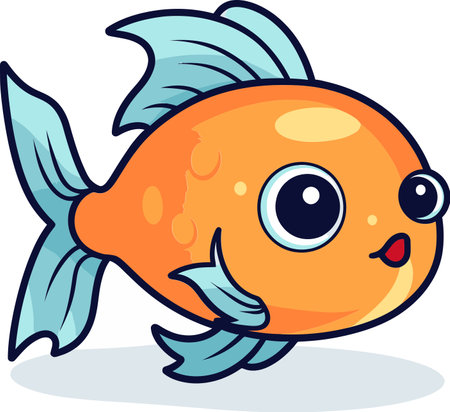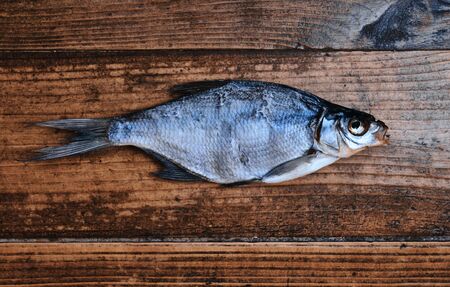Understanding Virginia’s Fishing License Requirements
If you’re planning to cast a line in the rivers, lakes, or coastal waters of Virginia, knowing the ins and outs of fishing license requirements is a must. Whether you’re a lifelong local or just passing through for a weekend getaway, the state requires most anglers to have a valid fishing license before dropping a hook in public waters. But not everyone needs one—let’s break it down. In Virginia, anyone aged 16 and older must have a fishing license to fish in freshwater or saltwater locations, regardless of whether you’re keeping your catch or practicing catch-and-release. Children under 16 can fish license-free but still need to comply with all other regulations. Residency matters, too: Virginians can apply for resident licenses (which are typically more affordable), while visitors must opt for non-resident licenses. To qualify as a resident, you must have lived in Virginia for at least six consecutive months immediately prior to applying. There are also some exemptions—for example, fishing on designated free fishing days or on private property with landowner permission. Always double-check the latest state guidelines before heading out, so your day by the water stays stress-free and legal.
2. Choosing the Right License: Options for Everyone
If you’re planning to fish in Virginia, picking the correct fishing license is your first step to a legal and hassle-free angling adventure. The state offers a variety of licenses and permits tailored to different needs—whether you’re a weekend warrior, a dedicated trout chaser, or introducing your kids to their first catch. Here’s a quick breakdown of the main options you’ll find:
| License Type | Where It Applies | Who Should Get It | Duration |
|---|---|---|---|
| Freshwater License | Lakes, rivers, streams (inland) | Anyone fishing non-tidal waters | Annual or short-term (1/5/10 days) |
| Saltwater License | Tidal waters, coastal areas | Anglers in Chesapeake Bay & ocean-side regions | Annual or short-term (1/7 days) |
| Combo License | Statewide (fresh + saltwater) | Those who fish both inland and tidal waters | Annual only |
| Short-Term License | Both freshwater & saltwater zones | Visitors or occasional anglers | 1/5/7/10 days depending on type |
| Trout Stamp (Permit) | Designated trout waters statewide | Trout anglers (in addition to base license) | Annual or short-term add-on |
| Youth Licenses | All waters (discounted rates) | Youth ages 16-17; under 16 usually exempt* | Annual or short-term |
| Special Permits | Certain locations or species (e.g., National Forests, state parks) | As required by posted regulations | Varies by area/species |
The Basics at a Glance:
- If you’re fishing freshwater: You’ll need a Freshwater License.
- If you’re headed for the coast: Pick up a SALTWATER License.
- If you want both: The Combo License has you covered.
- Catching trout? Add on a Trout Stamp.
- Youth licenses: Virginia encourages young anglers with discounted rates and exemptions for those under 16.
- *Note: Always check specific requirements for the waters you plan to visit, as some spots require additional permits.
A Natural Approach: Keep It Simple & Legal!
Navigating Virginia’s license options doesn’t have to be complicated—think about where you’ll fish and how often. Whether it’s a spontaneous day trip or an entire summer of casting lines, there’s a license that fits right into your plans. Always double-check local rules before heading out to enjoy those peaceful moments on the water!

3. Navigating Fishing Seasons in Virginia
Virginia’s diverse waterways are home to a wide array of fish species, each with its own unique fishing season set by the Virginia Department of Wildlife Resources (DWR). Whether you’re hoping to catch largemouth bass in the spring or chase after trout as the weather cools down, it’s essential to stay on top of these seasonal windows—not only for legal reasons but also to support healthy fish populations.
Key Seasons for Popular Species
Some of Virginia’s most sought-after fish include largemouth and smallmouth bass, trout, striped bass (rockfish), catfish, and sunfish. For example, bass fishing typically peaks from late April through early June when waters warm up and spawning occurs. Trout fishing is best during the stocked trout season, which generally runs from October 1 through June 15 in designated waters. Catfishing is good year-round in many rivers, while striped bass have defined spring and fall seasons, especially in tidal rivers and Chesapeake Bay tributaries.
Where to Find Up-to-Date Regulations
The DWR updates season dates and regulations annually, so it’s smart to check their official website before heading out. Look for downloadable guides or use their interactive map to see water-specific rules—some lakes and rivers have special regulations or even closures during spawning periods. Local tackle shops are another great resource; they’re plugged into the latest changes and can offer tips on what’s biting where.
Respecting Closures and Limits
Fishing outside of open seasons or ignoring size and bag limits isn’t just illegal—it also puts future fishing opportunities at risk. Always double-check the current rules for your target species and location. By planning your outings according to Virginia’s seasons, you’ll help preserve the state’s rich fisheries for generations of anglers to come.
4. Where and How to Purchase Your Fishing License
If you’re ready to cast a line in Virginia, getting your fishing license is the first step. The state makes it easy for both residents and visitors, offering several convenient ways to purchase a license. Here’s a step-by-step guide to help you secure your permit and keep it handy wherever you fish.
Step-by-Step: Buying Your Virginia Fishing License
Online
- Visit the official Virginia Department of Wildlife Resources website.
- Create an account or log in if you already have one.
- Select the type of license (annual, short-term, resident, nonresident) that fits your needs.
- Enter your personal information and payment details.
- Download or print your digital license immediately after purchase.
In Person
- Find a licensed retailer—these include sporting goods stores, tackle shops, and even some big-box stores across Virginia.
- Bring a valid ID (such as a driver’s license) and proof of residency if applicable.
- Select the appropriate license with the help of store staff.
- Pay using cash, credit/debit card, or other accepted methods.
- Receive a printed license on the spot—keep this with you while fishing.
By Phone
- Call the Virginia Department of Wildlife Resources’ toll-free licensing number (found on their official website).
- Provide necessary identification details over the phone.
- Select your desired license type and provide payment information.
- Your license will be mailed to you or emailed as a digital copy depending on your preference.
Comparison Table: License Purchase Options
| Method | Availability | Payment Types | License Delivery |
|---|---|---|---|
| Online | 24/7 | Credit/Debit Card | Instant Download/Print |
| In Person | Store Hours | Cash, Credit/Debit Card | Printed On-Site |
| By Phone | Business Hours | Credit/Debit Card | Mailed or Emailed |
TIPS: Keeping Your License Accessible While Fishing
- If you bought online, save a digital copy on your phone or print out several copies for backup.
- Laminating your paper license can help it last through wet conditions on the water.
- If you use a digital copy, ensure your phone is charged and accessible whenever you’re fishing—wardens do accept electronic versions!
- You must carry your license with you at all times while fishing; if asked by law enforcement or wildlife officials, be ready to present it promptly.
The process is straightforward no matter how you choose to buy. With your license secured and accessible, you’re set to explore Virginia’s diverse waters—legally and confidently.
5. Fishing Ethically: Rules, Etiquette, and Conservation
Creel Limits: Know Before You Go
Virginia takes fish populations seriously, so understanding creel limits—the maximum number of fish you can keep per day—is essential. These rules vary by species and waterbody, and are posted in the Virginia Department of Wildlife Resources (DWR) regulations. Always check local signage or the DWR website before heading out. Keeping only what you’ll use helps maintain healthy fish stocks for everyone to enjoy.
Catch-and-Release Best Practices
If you’re practicing catch-and-release, do it right to give fish the best chance at survival. Use barbless hooks when possible, handle fish with wet hands, minimize air exposure, and release them gently back into the water. Avoid fishing during extreme heat or cold, as this can stress the fish more than usual. Responsible handling shows respect for both the resource and your fellow anglers.
Respecting Habitats and Other Anglers
Good fishing etiquette means more than just following the rules—it’s about leaving no trace. Dispose of trash, old line, and bait containers properly. Avoid trampling sensitive shorelines or disturbing underwater plants that provide shelter for young fish. Give others plenty of space on crowded banks or piers, and keep noise to a minimum to preserve the peaceful atmosphere that makes fishing so special.
Ethical Angling Conduct
Ethical angling in Virginia goes beyond compliance; it’s a mindset of stewardship. Report violations if you see them, support conservation efforts like stream cleanups or habitat restoration days, and educate newcomers on sustainable practices. By looking out for our waterways and each other, we ensure that Virginia’s rich fishing traditions will thrive for generations to come.
6. Helpful Resources for Virginia Anglers
If you want to fish legally and responsibly in Virginia, having the right information at your fingertips is key. Here are some local resources every angler should bookmark or keep handy to stay updated on regulations, seasons, hotspots, and community connections.
Official Websites
- Virginia Department of Wildlife Resources (DWR): The go-to source for licensing, fishing regulations, interactive maps, and seasonal updates. Visit dwr.virginia.gov/fishing/.
- Go Outdoors Virginia: Manage your fishing licenses and check in on your harvests easily online. Visit gooutdoorsvirginia.com.
Hotlines
- DWR Information Hotline: For quick answers about licenses, seasons, and local rules, call 1-866-721-6911.
- Report a Poacher or Violation: If you witness illegal activity on the water, call the Wildlife Crime Line at 1-800-237-5712.
Local Community Groups & Forums
- Virginia Anglers Club: This Richmond-based club offers meetups, tournaments, and mentorship for new anglers. Find them at virginiaanglersclub.org.
- Northern Virginia Fishing Facebook Group: Connect with over 10,000 local anglers who share tips, real-time fishing reports, and gear advice. Search “Northern Virginia Fishing” on Facebook.
Bait Shops & Outfitters
Your neighborhood bait shop isn’t just for supplies—they’re often hubs of up-to-date info on what’s biting and where. Strike up a conversation to get the latest scoop before you hit the water.
Stay Connected for Success
Tapping into these resources ensures you’ll always be in the know—whether it’s rule changes or simply finding a new fishing buddy. Lean on your local community and official sources to make your next Virginia fishing trip legal, ethical, and memorable.


